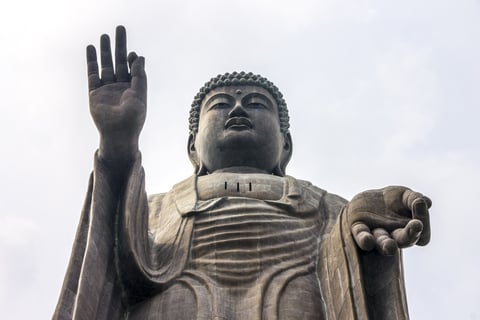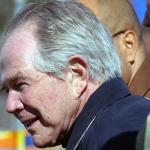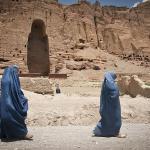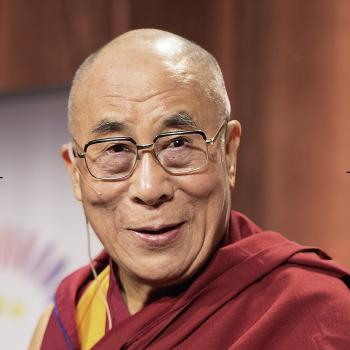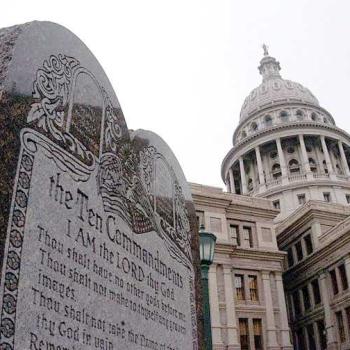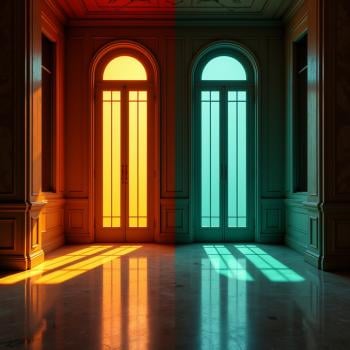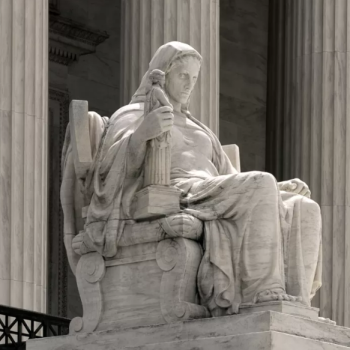The first Buddhist same-sex wedding (that we know of) took place in about 1970 in San Francisco. That much is widely agreed on, even if the exact date of the event is uncertain. It’s also widely agreed that the wedding raised no controversy or objections from clergy. And this may have something to tell us about how religion, culture, and social convention tend to blend together.
This first Buddhist same-sex wedding was conducted by the Rev. Koshin Ogui of the Buddhist Church of San Francisco. BCSF, established in 1898, was the first Jodo Shinshu temple on the mainland United States. Jodo Shinshu, often called “Shin” for short, is the largest school of Buddhism in Japan and in Japanese ethnic communities around the world. It’s the main stream of the main stream of Japanese Buddhism, in other words. Note that Shin Buddhism in the West is becoming multiethnic these days. BCSF is part of the larger Buddhist Churches of America organization, established in 1899, which is the North American branch of a denomination of Shin called Nishi Hongwanji-ha.
BCSF is located near San Francisco’s Castro district, home to one of the first gay neighborhoods in the U.S. The Buddhist Church of San Francisco “was attended by singles and couples, gay and straight” wrote Shin priest Jeff Wilson in the Buddhist journal Tricycle (“A Big Gay History of Same-sex Marriage in the Sangha,” June 27, 2015). Two men who were members of the church asked the Rev. Koshin Ogui to marry them. And he did. “Soon other BCA temples were also conducting same-sex marriages,” Wilson wrote.
No Controversy
If you aren’t old enough to remember the 1970s you might not appreciate how unusual a same-sex wedding was at the time. The LGBTQ movement was in its infancy. Indeed, I believe no one yet was using the initials “LBGTQ.” The Gallup organization didn’t begin to do polling on “gay issues” until 1977, and same sex-marriage wasn’t part of that poll. At the time, only 43 percent of participants believed same-sex relationships should be legal, never mind marriage. And of course it would be many years before same-sex marriages would be legally recognized in the U.S.
Most religions place great significance on marriage and sexual conduct. Buddhism, for the most part, considers marriage to be a secular or social contract and not a religious matter. It’s my understanding that for centuries Buddhist clergy usually didn’t perform wedding ceremonies, although now they do. The early rules for the sangha, or community of Buddhists, call for clergy to be celibate. This was not because sex is “sinful” but because it is a distraction from realizing enlightenment. The only teaching from the early scriptures regarding laypeople and sex is the Third Precept, a precaution to refrain from “sexual misconduct.” This has traditionally been interpreted to mean conforming to community norms, whatever those are. Marriage for laypeople was neither encouraged nor discouraged.
As Buddhism spread through Asia it did so without central institutional oversight. Clergy who established new temples often had considerable discretion to present Buddhism in their own way. And over the course of time, the Buddhist establishments that developed in various parts of Asia came to reflect local social conventions. They also developed separate canons of scripture. The only canonical prohibition of homosexual sex in Buddhism is in the Tibetan canon. This is in a text written by Tsongkhapa (1357–1419), and it forbids sex between men. But this text is only authoritative in Tibetan Buddhism. In east and south Asia, homosexuality appears not to have been an issue, one way or another, in Buddhism. It appears not to have been an issue in the cultures of south and east Asia until Europeans showed up.
The First Same-Sex Buddhist Wedding
So it was that when two men asked the Rev. Koshin Ogui to marry them, they were not asking for anything specifically prohibited in Japanese Buddhism. The wedding was conducted in the main hall of the Buddhist Church of San Francisco, as were other weddings. But no, it was not publicized at the time.
Writing in the Berkley Forum of the Berkley Center for Religion, Peace and World Affairs, Jeff Wilson points to three factors that contributed to Jodo Shinshu’s attitude toward same-sex marriage. (See “Buddha’s Big Shrug: The Non-Conflictual History of Same-Sex Marriage in the Buddhist Churches of America,” June 20, 2018.) First, he said, the Shin communities have experienced discrimination themselves. Shin priests in Hawaii and California were the first ethnic Japanese detained by authorities and sent to internment camps after the Pearl Harbor bombing in 1941. Second, as already explained, there’s nothing in Shin Buddhist teachings that condemns homosexuality specifically.
And third: Jodo Shinshu is part of the larger Pure Land tradition of Buddhism, introduced into Japan from China many centuries ago. The central practice of Pure Land is devotion to Amitabha, the Buddha of Boundless Light. Through Amitabha’s grace all beings may enter the Pure Land, the Western Paradise, where enlightenment may be realized by anyone. The Pure Land may be understood as a real place or as a mind purified by faith and devotion.
Amitabha does not discriminate. His mercy is open to all. As Jeff Wilson writes, “All beings are embraced and liberated by the Buddha, good and bad, old and young, male and female, the teachings proclaim—and straight and gay as well, state the ministers unanimously.” And so there was a wedding.
